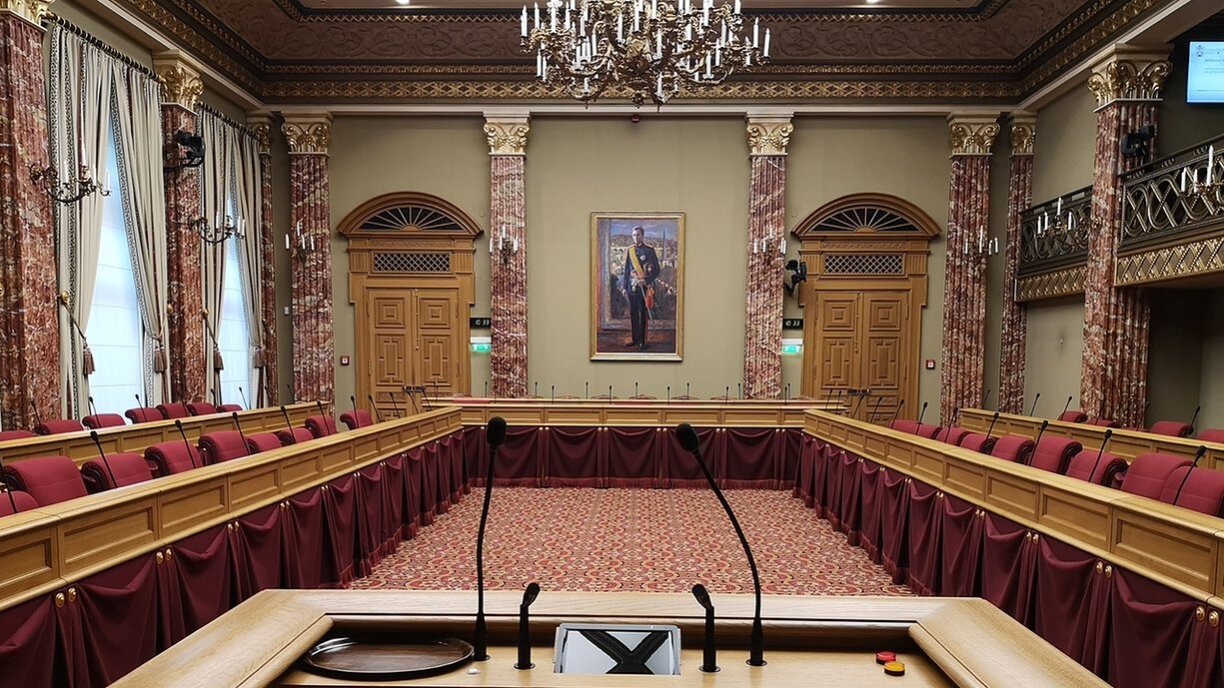
If Luxembourgers were to vote this Sunday, the Christian Social People’s Party (CSV) and its leader, Luc Frieden, would lose significant ground. The CSV-DP coalition would keep a narrow majority, while the opposition would regain strength.
This is what the new balance of political power in Luxembourg would look like.
Two years after the legislative elections of 8 October 2023, overwhelmingly won by the CSV, the decline in voting intentions for the Frieden government, already noted in October 2024, continues.
If Luxembourgers went to the polls this Sunday, the CSV would take an electoral hit and emerge as the big loser – though not enough to topple the coalition. Meanwhile, opposition parties Luxembourg Socialist Workers’ Party (LSAP), the Greens, Alternative Democratic Reform Party (ADR), and The Left would all gain ground.
This is, in essence, what the new Sunday poll (‘Sonndesfro’) survey conducted in the second half of September by Ilres for RTL and the Luxemburger Wort reveals.
The poll is not a good sign for the Christian Social party, which has governed in a socially tense climate for months, nor for its president and current Prime Minister, Luc Frieden, who had already underperformed in the last Politmonitor in June.
He had fallen from 4th to 8th place in the ranking of Luxembourgers’ favourite politicians. The Democratic Party (DP) of Xavier Bettel, while stable, is not benefitting from the situation either.
“We can observe a relatively significant drop for the CSV, which falls to 25.3% of voting intentions, or 4.6 percentage points less than in the last elections. The DP, the other governing party, remains largely stable, obtaining 19.7%, or 0.5 percentage points more than in the elections”, summarised Thomas Crépon, Managing Director of Ilres.
The points lost by the CSV appear to benefit mainly the ADR, which would rise to 11.6% of voting intentions (+2.1), and The Left, which would reach 5.9% (+2.3) – the highest percentages ever recorded since 2018 for both parties.
The Socialists (18.7%) would slighty gain (+0.6), the Greens one point (9.3%), while the Pirates, with 4.4%, would fall well below their 6.7% score of two years ago.
If Luxembourgers voted on Sunday, the CSV, currently the largest party in parliament, would lose four seats, dropping to 17 deputies from 21. The DP, with a score close to the 2023 elections, would keep its 14 deputies.
Gaining two seats, the ADR would be the big winner, rising to seven deputies – a first. The political winds are clearly shifting. The LSAP, the largest opposition party, would also gain, increasing from 11 to 13 seats, while the Greens would gain one seat.
Thomas Crépon said: “This is a message Luxembourgers wanted to send to the government in response to the societal decisions being imposed, particularly regarding the need to reach consensus on such issues. It’s about achieving agreement rather than having decisions imposed solely by the government.”
Luxembourgers “are aware that some things must evolve, but this needs to happen collectively. It is not up to a government to impose such decisions without being able to rely on unions or by forcing them through.”
The current CSV-DP government would thus hold only 31 seats, compared to 29 for the opposition.
In addition to the traditional ‘Sonndesfro’, respondents in this survey were also asked whether they believed the government was right to make pension-related decisions without agreement from trade unions and employers’ representatives. A clear majority (63%) said they disagreed – which may also help explain the CSV’s poor result in the ‘Sonndesfro’.
When asked about the liberalisation of shop opening hours, opinions were split: half were in favour, while the other half opposed the idea.
Clearer results emerged on other questions. 70% said abortion should be enshrined in the Constitution, while 68% agreed that military spending should be increased.
The survey was conducted between 15 and 29 September 2025, by phone and online, among 1,825 people of voting age. Of these, 1,151 interviews were conducted by phone – 302 on landlines and 849 on mobile phones – and 674 online.
All details are available on the website of the Luxembourg Independent Audiovisual Authority, Alia.lu.